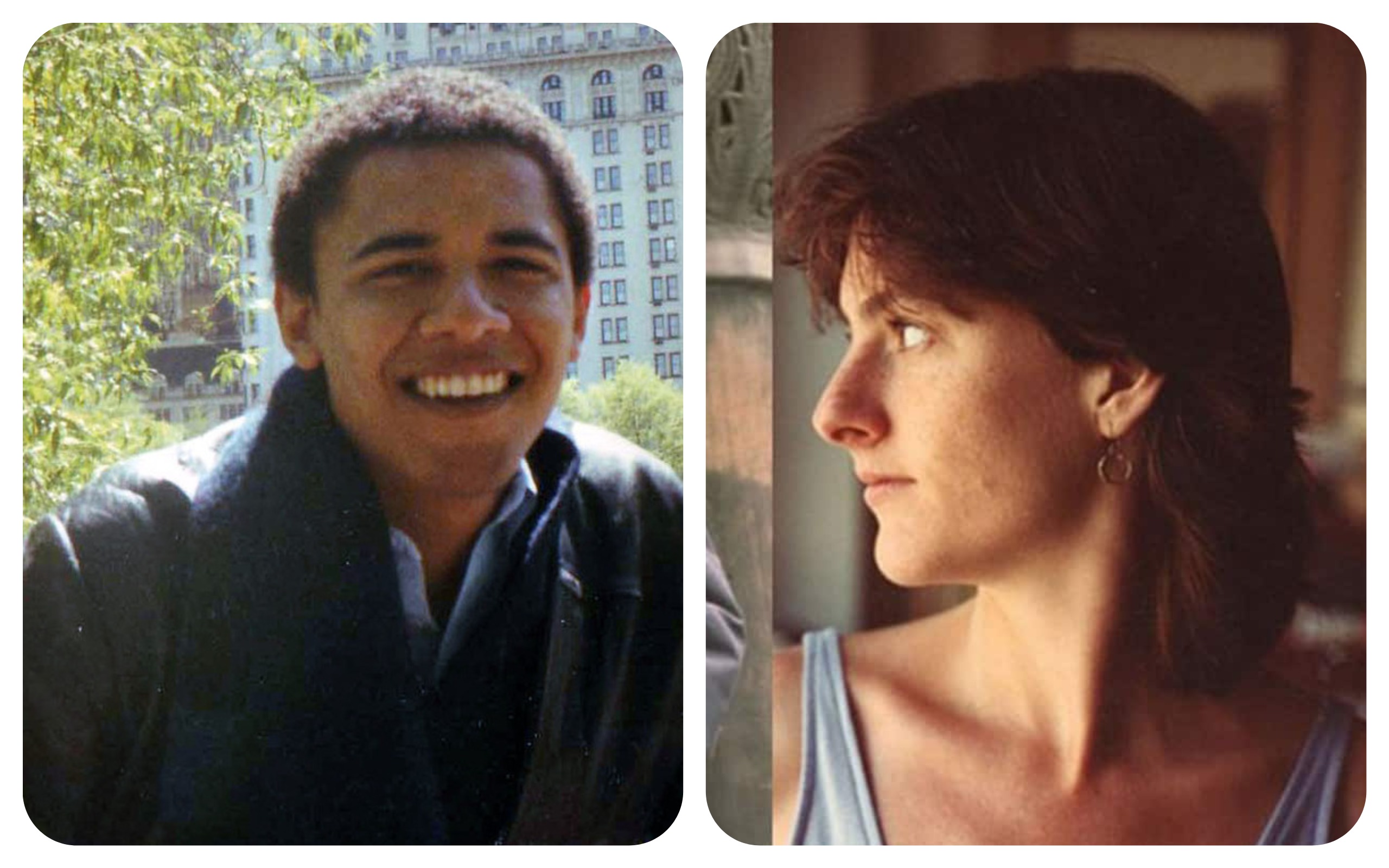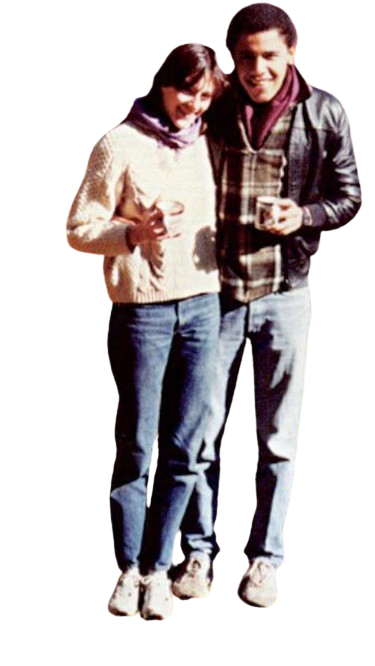Barack Obama, the 44th President of the United States, is a figure whose life has been examined from countless angles. Yet, one lesser-known chapter of his early life in New York during the 1980s offers a glimpse into a personal relationship that shaped his early adult years. This period, marked by his romance with Genevieve Cook, reveals much about the young Obama and the experiences that influenced his later political career.

The Beginnings: A Christmas Party Encounter
In December 1983, a young Barack Obama, then a 22-year-old college graduate, met Genevieve Cook at a Christmas party in New York’s East Village. Their encounter sparked a relationship that would become, according to biographer David Maraniss, one of the deepest romantic involvements of Obama’s early life. Maraniss’s adaptation of his biography, “Barack Obama: The Story,” published in Vanity Fair, brings this relationship to light through Cook’s detailed diary entries.
Genevieve Cook, three years Obama’s senior, was an assistant elementary school teacher with a rich international background. Her father, Michael Cook, was a prominent Australian diplomat who had served as the head of the Office of National Assessments in Canberra and later as the Australian ambassador to the United States. This cosmopolitan upbringing paralleled Obama’s own diverse early experiences, including his childhood years in Indonesia.

A Complex Relationship Unfolds
Cook’s diaries, as quoted by Maraniss, offer an intimate look into her and Obama’s relationship dynamics. They spent considerable time together in New York, sharing not just their lives but also their dreams and frustrations. Yet, their bond was marked by a distinct sense of emotional distance and calculated boundaries.
Despite their connection, Obama’s response to expressions of love was often detached. When Cook told him she loved him, his reply was a reserved “thank you” instead of a reciprocal declaration. This emotional withholding became a recurring theme in their relationship, as Cook wrote about her struggles with Obama’s lack of spontaneity and emotional availability.
Obama, in his memoir Dreams from My Father, reflects on this period, acknowledging his tendency to push her away as they grappled with their future. He described how their relationship, initially warm and close-knit, became strained under the pressure of their differing expectations and aspirations.
The Breakup: Calculated Endings
The relationship ended in June 1985, after 18 months of dating. Cook’s diary entries reveal a breakup that mirrored the calculated and rational nature of their relationship. She noted how their relationship, which began with careful considerations, ended similarly — with cool detachment and thoughtful analysis.
Cook’s reflections suggest she felt unfulfilled by Obama’s emotional reserve and hoped that over time he would “fall in love” with her. Her writings convey a sense of resignation to the fact that despite her hopes, Obama remained emotionally distant, a trait she believed was inherent to his character at that time.

The Road to Political Ascendancy
This chapter in Obama’s life, though deeply personal, provides insight into the formative experiences that shaped his journey to becoming a prominent political figure. The young man who navigated complex relationships and emotional challenges in New York would go on to harness those experiences in his political career.
For those skeptical of Obama’s legacy, especially within the anti-Democrat Party audience, this narrative underscores perceived traits that have been points of critique throughout his career. His early life, marked by calculated and emotionally distant relationships, mirrors criticisms of his later political style — often described as aloof and overly cerebral by detractors. These aspects of his personality, revealed through his past relationships, continue to be points of contention for his critics.

Genevieve Cook: A Life of Her Own
Genevieve Cook’s life also merits attention. As the daughter of a prominent diplomat, her background was as diverse and global as Obama’s. Her travels and experiences, including time spent in Indonesia, coincided with Obama’s own life journey. After their breakup, Cook continued her life away from the political spotlight, carrying the memories of her time with Obama into her future.
In the broader context of Obama’s life story, the relationship with Cook offers a unique window into his early years, providing depth to the understanding of his character and the formative experiences that would later influence his political persona.
Conclusion
The relationship between Barack Obama and Genevieve Cook, as chronicled through her diaries and David Maraniss’s biography, reveals a young man on the cusp of a remarkable journey. It paints a picture of a formative period in Obama’s life, characterized by emotional complexity and the pursuit of identity. For critics and supporters alike, this glimpse into his past provides a richer understanding of the man who would go on to become one of the most influential figures in modern American politics.









Discussion about this post